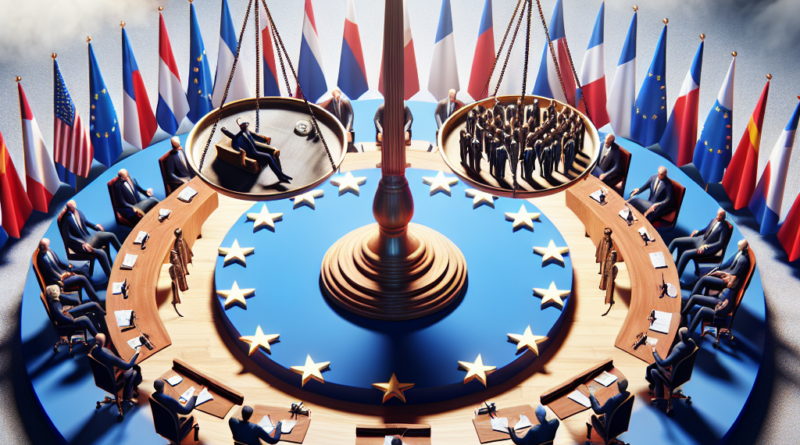Von der Leyen’s power assurance agreement in the EU is undemocratic
“UE Government”: Democratic or Oligarchic?
The negotiations to form the “EU Government” are currently underway, amidst criticism, discontent, and controversy over the method, which some consider undemocratic.
Ursula von der Leyen is likely to be reappointed as head of the Commission, Estonian Prime Minister Kaja Kallas as representative for foreign affairs, and former Portuguese Prime Minister António Costa as President of the Council.
But is everything resolved? Not quite.
Dissenting voices are being raised from various sides – notably from Italy, with a fierce Giorgia Meloni dissatisfied with the consideration given to her party in the EU Parliament and to her own political figure within the Union.
Some observers argue that the recent developments in the European Union once again shed a critical light on the antidemocratic methods used to distribute top positions.
An analysis by a German newspaper highlights the lack of European democracy.
What does this reflection suggest about EU political and institutional dynamics? Are we truly facing an antidemocratic drift?
According to Raphael Schmeller, as reported by Berliner Zeitung, there is little democracy in the EU nominations agreement.
The deal was negotiated by a group of six people, composed of Chancellor Olaf Scholz, President Emmanuel Macron, Prime Minister Donald Tusk, Prime Minister Pedro Sánchez, Prime Minister Mark Rutte, and Prime Minister Kyriakos Mitsotakis.
This group decided behind closed doors the distribution of top positions without involving the other 27 EU Member States, Schmeller emphasizes.
This raises the question of why such a small group should be so crucial when all EU countries are represented at the table.
The answer may be too simple: it follows the political and party negotiation “law” representing the parliamentary majority, as stressed by Schmeller.
Firstly, the six represent the three main factions in the European Parliament – conservatives, social democrats, and liberals.
Secondly, there are the “Europeans” who want to save the EU from their opponents.
Thirdly, together they have enough support at the EU top to achieve the necessary qualified majority, i.e., at least 15 Member States representing 65% of the EU population.
And fourth, chaos like that of 2019 should be avoided.
Discontent is evident and not veiled.
Italian Prime Minister Giorgia Meloni, whose right-wing ECR group has become the third-largest force in the European Parliament, was excluded from the talks.
She speaks of “oligarchy” and demands that at least the votes obtained by her group be considered differently.
Italy is requesting a vice-presidential position in the Commission with an important portfolio – for example, on migration.
With these premises, the outcome of the nominations is not guaranteed and could reveal other opaque and undemocratic mechanisms.
After the top appointment, the European Parliament will elect the Commission’s president.
For this, von der Leyen needs an absolute majority of at least 361 out of 720 deputies.
The EPP, Socialists, and Liberals agree, but dissidents are predictable in the secret vote.
There can be a maximum of 38 out of 399, otherwise the CDU politician has failed.
It remains interesting to see if the Parliament will be able to overturn this antidemocratic agreement.
Overall, this once again demonstrates how undemocratic and non-transparent decision-making processes are in the EU according to Schmeller.
It remains to be seen if the European Parliament will have the courage to stop this agreement and set an example for greater democracy in the EU.


